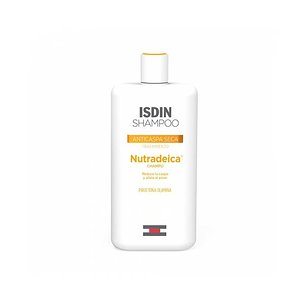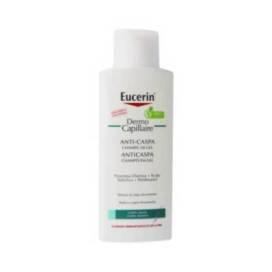No products

Dandruff Under Control: Practical Tips for Maintaining Healthy Hair
In this post, we will discuss how to keep your hair healthy and dandruff-free. Dandruff is a common problem that affects many people and can be uncomfortable and embarrassing. Here, we provide useful information about the causes, home treatments, the importance of choosing the right shampoo, dietary tips and lifestyle habits, and when to consult a dermatologist.
Common Causes of Dandruff and How to Identify Them
Dandruff can be caused by various reasons, and it is important to identify the specific cause to treat it properly. Some common causes include:
- Dry Skin: It is one of the most frequent causes and tends to worsen during the cold months. Dry skin produces small white flakes that are not usually accompanied by redness or inflammation.
- Seborrheic Dermatitis: This condition causes irritation and produces oily skin with yellowish or whitish scales. It often appears in areas where there are many sebaceous glands, such as the scalp, eyebrows, and sides of the nose.
- Malassezia Fungus: A fungus that lives on the scalp and can cause irritation and excessive production of skin cells. When there is an overgrowth of this fungus, it can cause inflammation and dandruff.
- Hair Products: Some products can cause buildup on the scalp and trigger dandruff. Excessive use of gels, sprays, and other products can irritate the scalp and contribute to dandruff.
Effective Methods and Home Treatments to Control Dandruff
There are several methods and home treatments that can help you effectively control dandruff. Here are some of the most popular:
- Tea Tree Oil: Known for its antimicrobial and anti-inflammatory properties. You can add a few drops to your regular shampoo or mix it with a carrier oil and massage it into the scalp.
- Coconut Oil: Hydrates the scalp and has antibacterial properties. Applying coconut oil to the scalp and leaving it on for at least 30 minutes before washing can help reduce dandruff.
- Aloe Vera: Soothes irritation and reduces flaking. Applying aloe vera gel directly to the scalp can relieve itching and inflammation.
- Baking Soda: Exfoliates and removes dead skin cells from the scalp. Making a paste with baking soda and water and applying it to the scalp for a few minutes before rinsing can be very effective.
The Importance of Choosing the Right Shampoo and How to Apply It Correctly
Using the right anti-dandruff shampoo is crucial for keeping your scalp healthy and dandruff-free. When choosing a shampoo, look for ingredients such as ketoconazole, zinc pyrithione, selenium sulfide, or salicylic acid, which are known for their effectiveness against dandruff.
How to Apply Shampoo Correctly
- Thoroughly wet your hair before applying shampoo. This helps distribute the product evenly.
- Apply a sufficient amount of shampoo to your scalp. You don't need a large amount, just enough to cover the scalp and hair.
- Gently massage with your fingertips to avoid irritation. Avoid scratching with your nails, as this can worsen dandruff and cause injury.
- Rinse thoroughly and repeat if necessary. Make sure there are no shampoo residues left in the hair, as this can contribute to buildup and cause more dandruff.
- Use the shampoo regularly according to the product's instructions. Consistency is key to controlling dandruff.
Dietary Tips and Lifestyle Habits to Prevent Dandruff
A balanced diet and good lifestyle habits can significantly contribute to preventing dandruff. Here are some useful tips:
- Consume foods rich in zinc and B vitamins, such as nuts, eggs, and leafy green vegetables. These nutrients are essential for scalp and hair health.
- Avoid fatty and processed foods. A diet high in fats and sugars can increase sebum production, which can worsen dandruff.
- Maintain good hydration by drinking enough water. Proper hydration is essential for overall skin health, including the scalp.
- Manage stress, as it can exacerbate dandruff. Practicing relaxation techniques such as yoga, meditation, or breathing exercises can help keep stress under control.
- Maintain good hair and scalp hygiene. Regularly washing your hair and keeping your scalp clean is essential to prevent the buildup of dead cells and oil.
When to Consult a Dermatologist
Although dandruff can be controlled with home treatments and lifestyle changes, there are times when it is necessary to consult a dermatologist:
- If dandruff is persistent and does not improve with over-the-counter treatments. A dermatologist can prescribe stronger treatments that are not available over the counter.
- If you experience inflammation, redness, or pain on the scalp. These can be signs of a more serious condition that needs medical attention.
- If you have significant hair loss along with dandruff. This can be a sign of an underlying condition that needs to be diagnosed and treated by a professional.
- If there are signs of infection, such as pus or crusts. These can indicate a bacterial or fungal infection that requires medical treatment.



